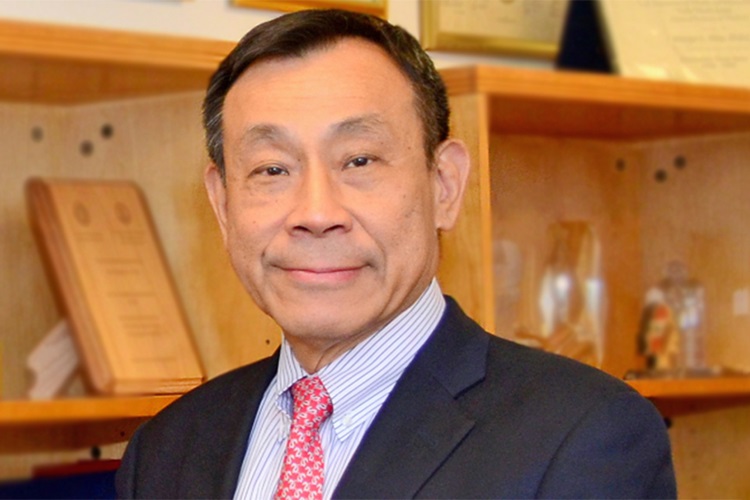Message from Dr. George King
What sets our research apart
A Unique Approach to Research
Only a multidisciplinary approach, such as that found in the Research Division at Joslin Diabetes Center, can fully explore the most promising pathways to prevent, treat, and cure type 1 and type 2 diabetes and their complications.
Diabetes is not a single disease; it is a complex problem caused by multiple genes and environmental factors that call for scientists to attack it from many perspectives. What sets Joslin's research apart is our critical mass of researchers whose sole focus is diabetes and our one-of-a-kind resources that facilitate rapid scientific progress.
Our investigators, who engage in both basic and clinical research, are advancing science at an unusually fast pace due to Joslin’s unique environment. For example, Joslin’s NIH/NIDDK federally-funded Diabetes Research Center (DRC) provides the infrastructure necessary to support research efforts across all the disciplines and encourage the development of young scientists. The DRC offers researchers specialized cutting-edge technology assistance as well as a network of colleagues from across the medical and scientific community. Joslin is proud to have been selected as one of only 16 NIDDK-funded DRCs across the country.

George L. King, M.D., Chief Scientific Officer, Professor of Medicine and Ophthalmology
Joslin’s basic scientists are discovering critical steps in the development and function of islet cells that produce insulin. They are uncovering how nutrients and physical activity impact our metabolism and how different organs in the body communicate to promote metabolic health. Joslin’s Clinical Research Center (CRC) supports a large number of studies that translate discoveries from the bench to the clinical arena. This center has facilitated the advancement of anti-inflammatory drugs from the basic investigations to NIH-funded, multi-center trial as a treatment for type 2 diabetes. The CRC has also translated the discovery of brown fat in adult humans and to studies of induction of brown fat as a novel therapeutic approach to obesity and type 2 diabetes.
For people with type 1 diabetes, the CRC is testing new treatments to lower autoimmunity and evaluating the use of the artificial pancreas. Our affiliations with Brigham and Women’s Hospital, Beth Israel Deaconess Medical Center, Boston Children’s Hospital, and Harvard Medical School enable Joslin researchers to work with investigators with complementary interests and expertise through such programs as the Harvard Stem Cell Institute, the Clinical Islet Transplantation Program at Harvard Medical School and the Juvenile Diabetes Research Foundation Center on Immunological Tolerance in Type 1 Diabetes. The CRC provides critical infrastructure for these highly collaborative studies.
Extraordinary Teamwork
Interactions that occur within the walls of Joslin often give rise to the important questions that stimulate thinking and drive progress toward cure and prevention of diabetes. Here at Joslin, independent thinking and creativity are valued and supported because we recognize these are the ingredients that lead to greater understanding and discovery. Joslin researchers have the opportunity to exchange ideas and challenge one another in a collegial setting that values creativity and insights that come from diverse training and perspectives.
Scientific progress requires a multidisciplinary team approach like the one found at Joslin Diabetes Center. Joslin’s 50-Year Medalist Study is an example of the unique relationship between clinical researchers at Joslin and their colleagues who specialize in clinical epidemiology, genetics, biochemistry, and cell biology. By studying people who have lived with type 1 diabetes for 50 years, Joslin teams are identifying biomarkers for the development of complications and making surprising discoveries such as the finding that many of the 50-Year Medalists still have insulin-producing islet cells. These observations will help us to develop new approaches to treatment and prevention.
Joslin teams are tackling the complexity of diabetes and its complications with a comprehensive and creative approach. Scientists from Joslin’s Integrative Physiology and Metabolism, Islet Cell and Regenerative Biology, and Immunology Sections are teaming up to solve the mystery of islet failure in type 1 and type 2 diabetes. Our investigators are leveraging databases of biological and psychological data from patients with diabetes, stretching back decades to understand mechanisms that underlie complications and to identify genetic risk factors for diabetes.
Moving Forward As Never Before
To extend the reach of our work, Joslin investigators not only partner with their colleagues down the hall and in the Harvard community, but work with scientists across the globe. We are committed to conquering diabetes in all of its forms and will continue to lead the scientific community on new pathways of discovery in diabetes.

Support Our Research
Our researchers are constantly pushing science beyond what is possible today in a relentless pursuit of a cure that will transform the lives of millions. Help us help the ones you love.
